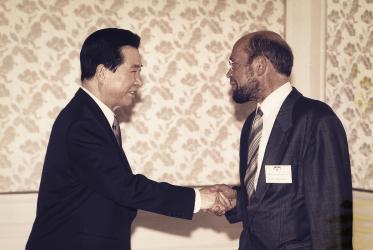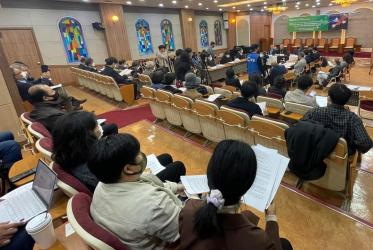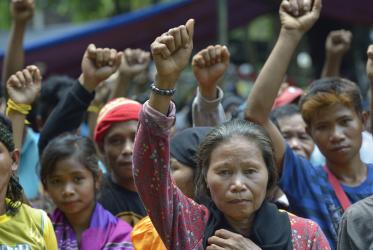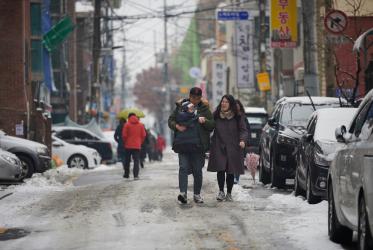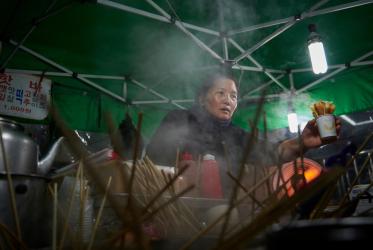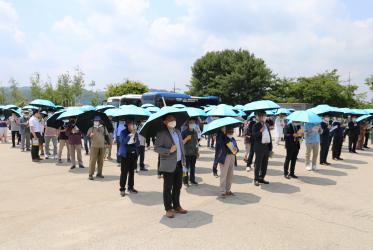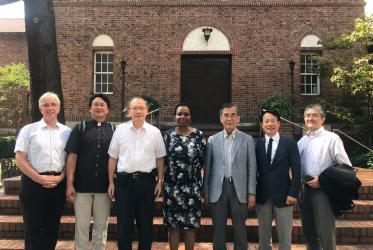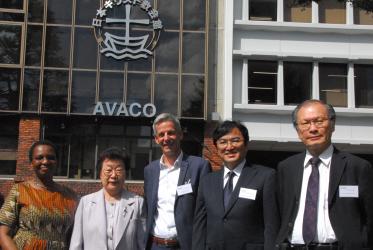Displaying 1 - 20 of 91
WCC offers prayer during Japanese peace conference
11 March 2021
CCIA meets in Brisbane with focus on Pacific regional priorities
19 February 2020
In Japan, spirit of koinonia deepens
26 September 2019
In Japan, theologians reflect on today’s global manifestations of racism
18 September 2019
In Japan, indigenous and ecumenical youth call for action against racism
12 September 2019
“Economy of life” lifted up at special school in Indonesia
22 August 2019
